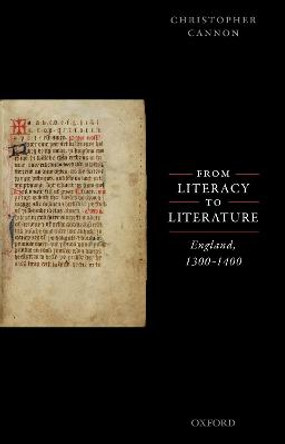Description
This book also charts the complex mechanisms by which English writing acquired this power in a series of linked close readings of both canonical and more obscure texts. It encloses those readings in five compelling accounts of much broader cultural areas, describing, in particular, the productive relationship of Middle English writing to medieval technology, insurgency, statecraft and cultural place, concluding with an in depth account of the particular arguments, emphases and techniques English writers used to claim a wholly new jurisdiction for their work.
Both this history and its readings are everywhere informed by the most exciting developments in recent Middle English scholarship as well as literary and cultural theory. It serves as an introduction to all these areas as well as a contribution, in its own right, to each of them.
About the Author
Christopher Cannon, Fellow of Girton College and University Senior Lecturer in the Faculty of English, University of Cambridge
Reviews
"Christopher Cannon's latest book makes one fall in love with Middle English literature all over again ... a book that - I am convinced - will endure as one of the most cogent, sophisticated, and delightful introductions to English medieval literary history."
English
"This is a scintillating cultural history of Middle English literature, punctuated throughout with critical insights ... Cannon's succinct and vivid style allows him to introduce striking bits of philosophical or cultural theory alongside descriptions of crucial technological innovations ... equipped with its bibliographical guides and timeline, Medieval English Literature achieves the enviable aim of providing the student with both a cultural history and plenty of original literary commentary."
Medium Auvum
"Following in the distinguished footsteps of Derek Pearsall and James Simpson, Christopher Cannon offers an exhilarating grand tour of Middle English literature. Cannon's writing is not just efficient but also elegant and pithy. His aphorisms condense knotty arguments and enact complex critical positions with unusual poise and insight. But underpinning his approach throughout is a philologist's ability to listen attentively to the voices of the pages, to display what Nietzsche called 'the leisurely art of the goldsmith applied to language'."
Vincent Gillespie, University of Oxford
Book Information
ISBN 9780745624426
Author Christopher Cannon
Format Paperback
Page Count 256
Imprint Polity Press
Publisher John Wiley and Sons Ltd
Weight(grams) 417g
Dimensions(mm) 229mm * 152mm * 21mm










